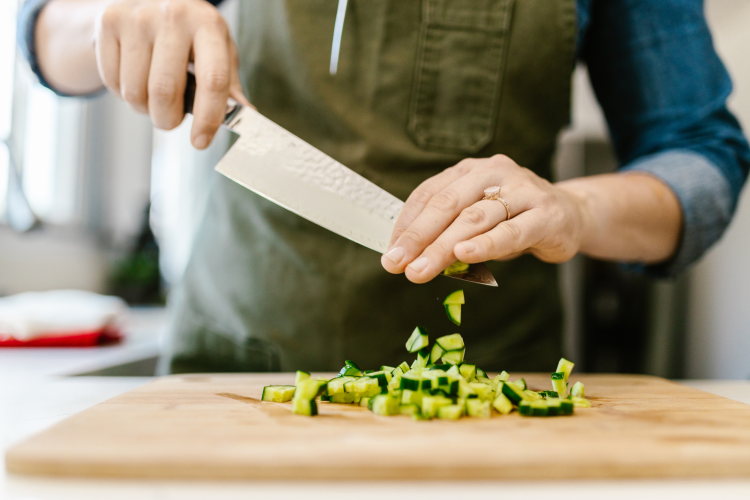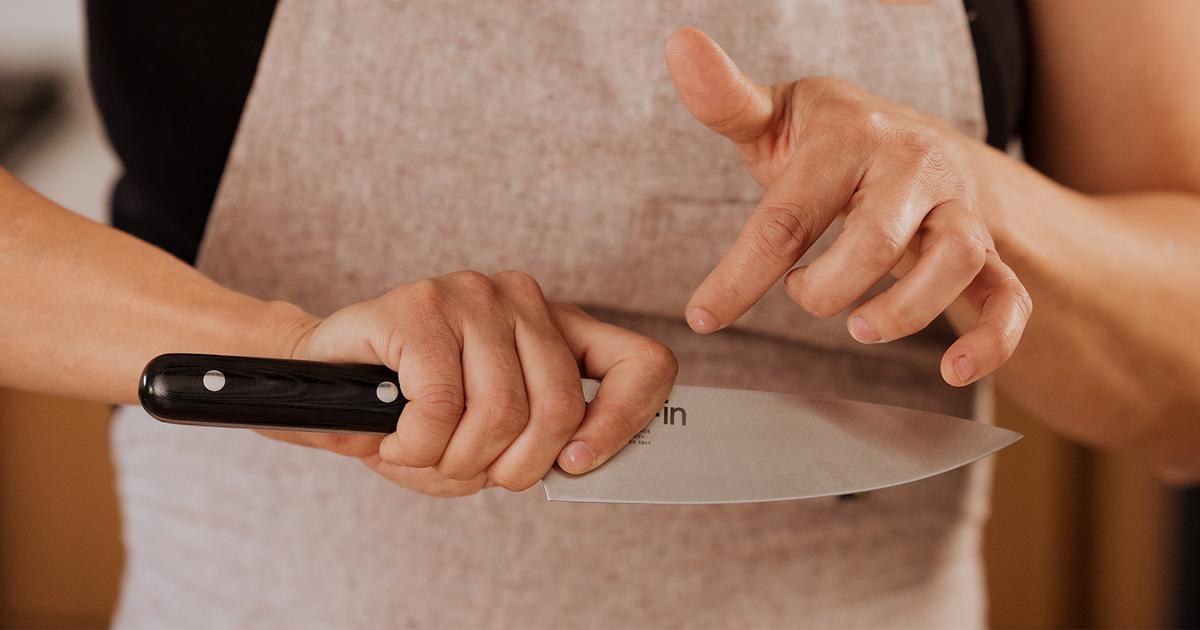When it comes to selecting the perfect knife for your kitchen, the debate often boils down to German vs French knives. Both types of knives have their unique features and benefits, catering to different culinary needs. Understanding these distinctions can help you make an informed decision that suits your cooking style.

What Sets German Knives Apart?
German knives are renowned for their durability and robustness. Typically, they are forged from high-carbon stainless steel, which makes them resistant to rust and stains. This quality ensures that these knives can withstand the demands of heavy-duty cooking.
Design and Structure
The design of a German knife is characterized by its heavier and thicker blade, providing stability and power. The blade’s curve allows for a rocking motion, ideal for chopping and mincing. The handle is ergonomically designed for a comfortable grip, reducing hand fatigue during extended use.
Blade Thickness and Hardness
German knives typically have a blade thickness that contributes to their strength. The hardness of the blade often falls on a specific scale, ensuring a balance between hardness and flexibility. For more details on German knife hardness, you can explore further.
Exploring the Appeal of French Knives
On the other hand, French knives are often praised for their precision and lightness. They are typically crafted from thinner, harder steel, which contributes to their sharpness and agility in the kitchen.
Design and Structure
The design of a French knife is sleek and elegant, with a longer blade that is perfect for slicing. The straight edge allows for precise cuts, making it a favorite among chefs who emphasize finesse and accuracy.
Blade Sharpness and Maintenance
Due to their sharpness, French knives require frequent honing to maintain their edge. However, their maintenance is straightforward, and with proper care, they can last a lifetime. Learn how to hone German knives and apply similar techniques to French knives for optimal performance.
Choosing Between German and French Knives
Choosing between German vs French knives ultimately depends on your cooking style and preferences. If you prefer a knife that offers stability and power, a German knife might be your best bet. However, if precision and finesse are what you seek, a French knife could be more suitable.
Understanding Your Culinary Needs
Consider the type of cooking you frequently engage in. For tasks that require heavy-duty chopping and slicing, a German knife’s robustness is an advantage. Conversely, for delicate slicing and intricate cuts, the precision of a French knife reigns supreme.
Balancing Cost and Quality
Both German and French knives come in a range of prices. Investing in a high-quality knife can be costly, but it is a worthwhile investment for serious cooking enthusiasts. The quality of the knife often correlates with its price, ensuring longevity and performance.
Conclusion
In the debate of German vs French knives, there is no definitive winner. Each has its strengths and caters to different culinary needs. By understanding the unique characteristics of each, you can make an informed decision that enhances your cooking experience.

Frequently Asked Questions
What are the main differences between German and French knives?
German knives are known for their durability and thicker blades, suitable for heavy-duty tasks, while French knives are praised for their precision and lightweight design.
Which knife is easier to maintain?
French knives often require more frequent honing due to their sharpness, but both types of knives benefit from regular maintenance to stay in top condition.
Are German knives better for beginners?
Yes, German knives are generally more forgiving, making them a good choice for beginners who need a reliable and durable knife for various tasks.
For more insights into the history of German knives, visit this article.
This article contains affiliate links. We may earn a commission at no extra cost to you.


